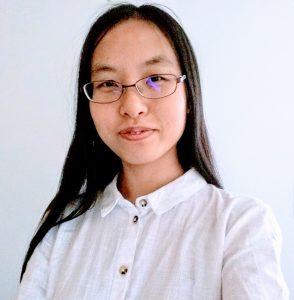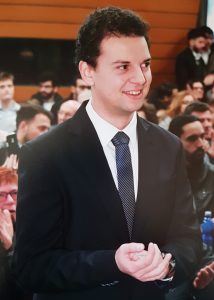Events in November 2019
-
PhD Seminars Special Edition
PhD Seminars Special Edition
–
November 4, 2019 Speaker
SpeakerHui-Yin Wu (BIOVISION)
Title
Interactive and multimedia storytelling
Abstract
The computational study of storytelling helps us understand and develop new technologies and media that can change the way we create, share, and experience multi-sensory information. Originating from the study of emergent stories and AI agents in video games, nowadays interactive storytelling technologies are also finding their place in wider entertainment and social applications such as interactive journalism, serious game design, content recommendation for online streaming, occupational training, social media curation, and many more.
This talk will introduce my current and previous work in the context of interactive and multimedia storytelling. I will begin with a discussion on how modern advances in computer graphics, artificial intelligence, and human-computer interaction have impacted existing forms of media such as film and video games, and given rise to smart tools for aiding the creation of multimedia content. A second focus will be on how we have adapted storytelling technologies in as varied fields as low-vision reading, real-time editing systems, and digital curation. -
PhD Seminars II
PhD Seminars II
–
November 18, 2019Talk 1
Foivos Fioravantes (COATI)
Title
Distinguishing labelings of Graphs
Abstract
Many real life scenarios can be modeled as graph colouring problems. Among these, the problem of minimizing number of colours needed for a proper colouring (in which adjacent vertices have different colours) is of particular significance (Four-Colour Theorem). Solving this problem is, in general, hard. Furthermore, there are graphs that require a large number of colours to be properly coloured; this can pose serious issues for practical applications. In recent years, an alternative way to deal with these problems has been studied: finding labelings of a graph that allows us to distinguish some of its elements (for example its vertices). In this presentation we explain these notions, the state of the art and some of our preliminary results.
Talk 2
Speaker
Title
The role of geometry in numerical simulation
Abstract
Abstract: In industrial numerical simulation, it is estimated that 80% of the analysis time is dedicated to the generation of the computational grid, mainly due to the different mathematical representations used in the geometric design and in the numerical solvers (structure, fluid, acoustics, etc.). In this talk, two opposite approaches to reduce the cost of mesh generation will be presented, the immersed boundary method, that aims to completely separate the computational grid from the geometry, and the isogeometric analysis, whose goal is to unify design and simulation tools. Some numerical examples will be given.







